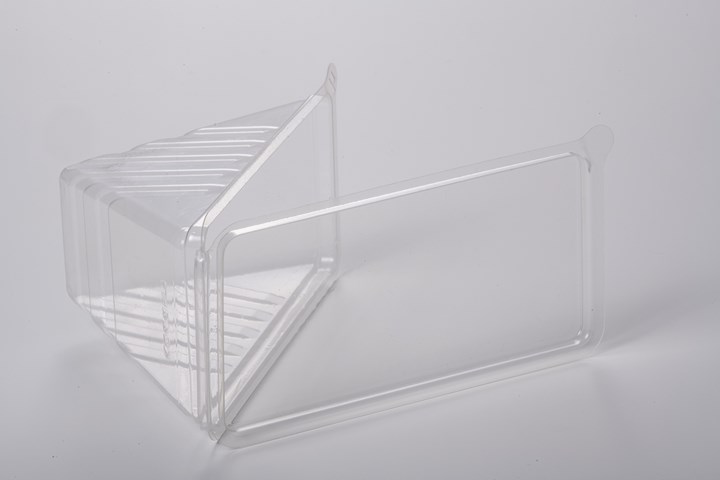Amorphous PHA Gets Green Light from FDA for Food-Contact Applications
FDA listing clears the way for CJ Biomaterials’ amorphous polyhydroxyalkanoate to be used in the manufacture of food contact materials sold in the U.S.

Amorphous polyhydroxyalkanoate (aPHA) produced by ., a division of South Korea-based CJ CheilJedang, is now included in FDA’s Inventory of Effective Food Contact Substances (FCS). Assigned Food Contact Notification (FCN) 2281, CJ Biomaterials’ aPHA, branded Phact A1000P, can now be used to make packaging materials sold in the U.S. that come into contact with food, including rigid and flexible packaging, serviceware and other products.
CJ Biomaterials was the world’s first company to produce amorphous PHA, which is a softer, more rubbery version of PHA that offers fundamentally different performance characteristics than crystalline or semi-crystalline forms of the biopolymer. It is a biobased material that is TUV OK certified for industrial and home compost, soil biodegradable and marine biodegradable. When combined with other biopolymers, such as PLA, it enhances the biodegradability and compostability of products, including food packaging materials.
CJ Biomaterials introduced its aPHA in early 2022, and the biopolymer is already being used to develop various end-use products, including cosmetic containers. The company has also partnered with various organizations to start developing other eco-friendly solutions using aPHA, including NatureWorks, Accor Hotels, and Yuhan-Kimberly, and plans to expand production capacity to meet expected demand for the material.
Said CJ Biomaterials’ chief commercial officer Max Senechal, “Having Phact A1000P on the approved FCS inventory list means we can now expand the use of our amorphous PHA to a range of food contact materials in a key growth market, further advancing our goal to make a positive impact on the world."
Related Content
-
Prices Up for PE, PP, PS, Flat for PVC, PET
Trajectory is generally flat-to-down for all commodity resins.
-
Polymer Science for Those Who Work With Plastics: Molecular Weight — What It Is and Why It Matters
Molecular weight might seem like an abstract concept, but it plays a crucial role in determining the behavior of plastics during processing and in their final applications.
-
Prices for PE, PS, PVC, PET Trending Flat; PP to Drop
Despite price increase nominations going into second quarter, it appeared there was potential for generally flat pricing with the exception of a major downward correction for PP.



